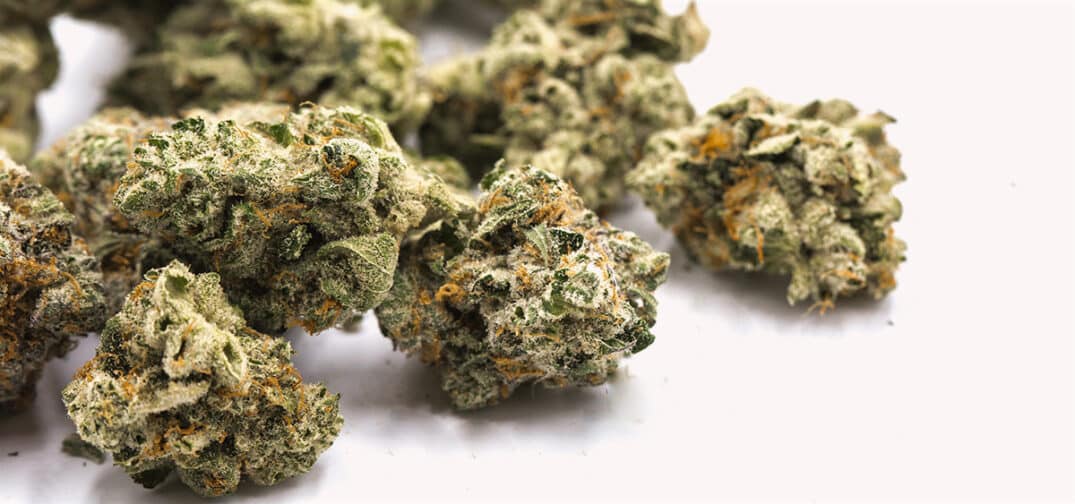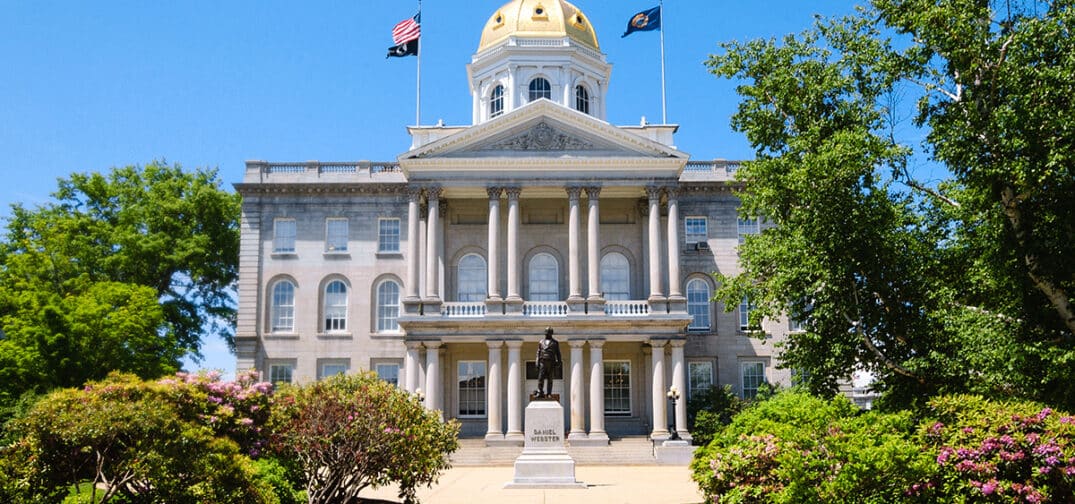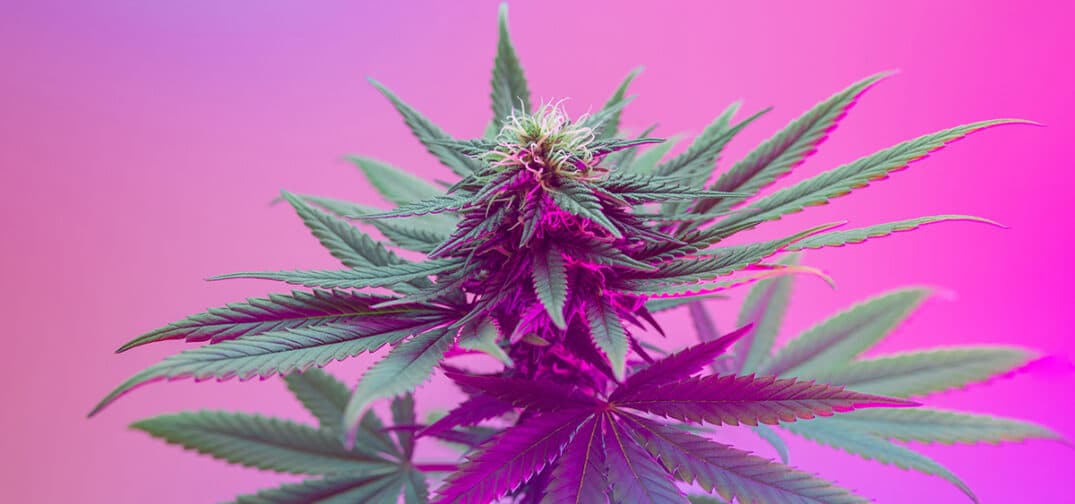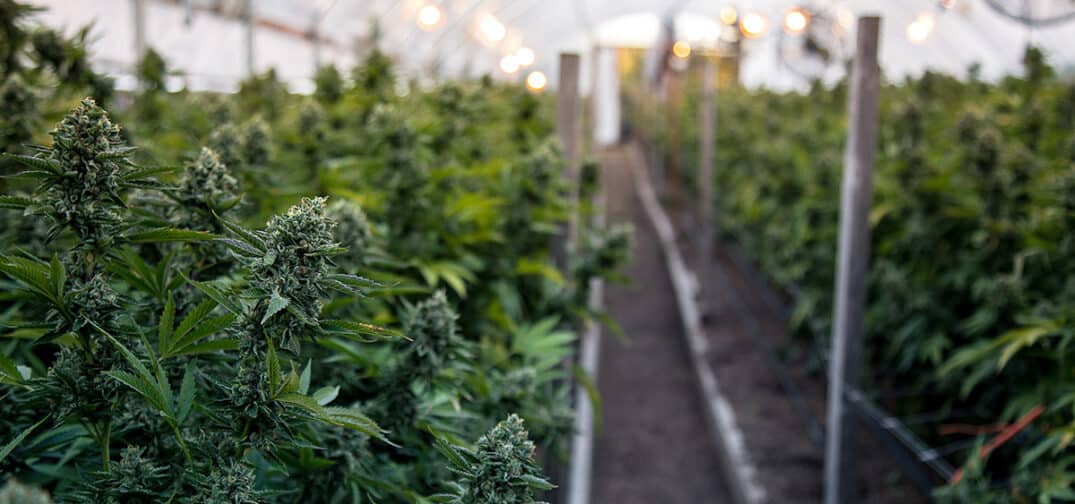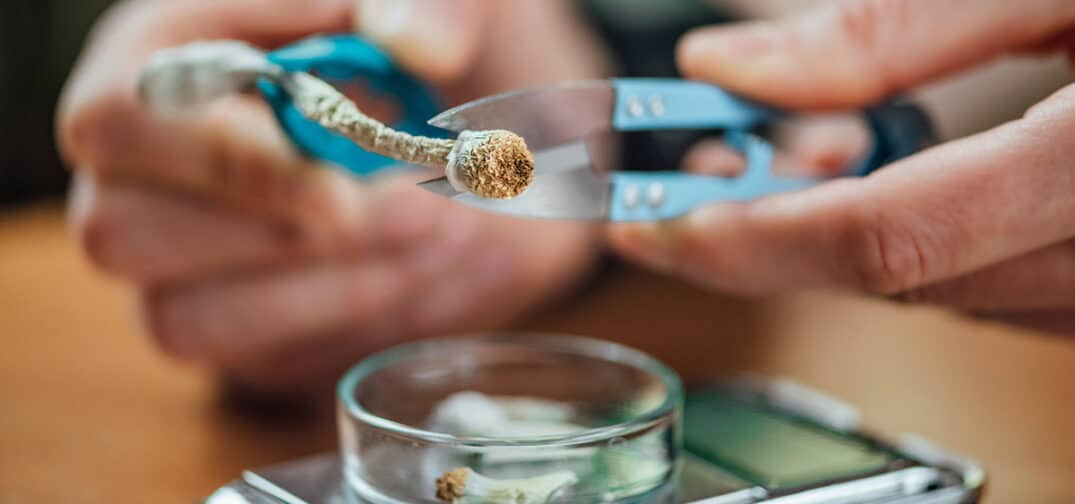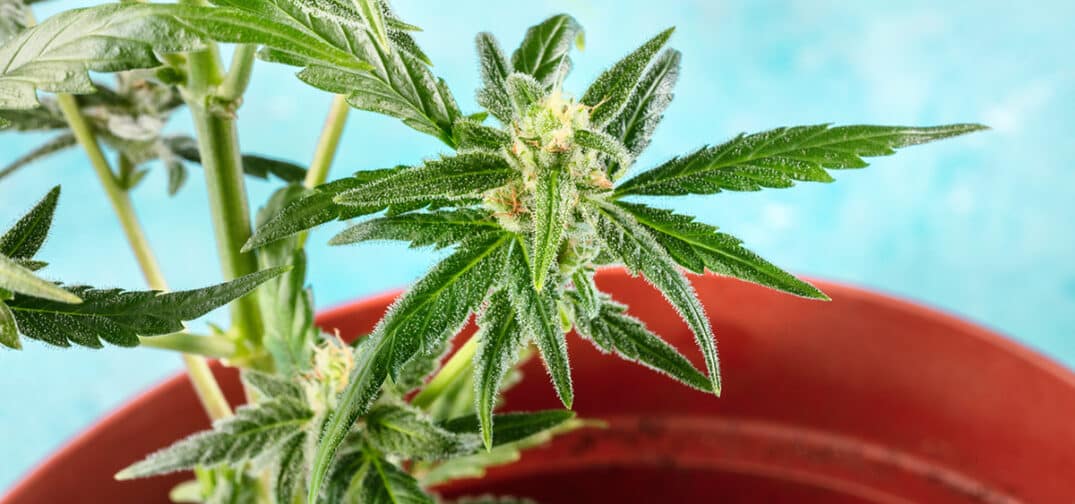Lavall Chichester is the CEO of Growth Skills, an award-winning growth marketing agency based in New York City that specializes in developing custom, multifaceted strategies to accelerate audience and revenue growth for brands. Lavall joins us to talk about the key components to a winning digital strategy, how Growth Skills built a high-traffic website geared toward cannabis and CBD consumers, and how brands can leverage growth marketing concepts with their own websites and social platforms.
Scroll down to read the full interview below!
Ganjapreneur: Before you started working with cannabis businesses, what are some of the industries that Growth Skills has served?
Lavall Chichester: Growth Skills works in a variety of industries like finance, ecommerce, and healthcare to name a few. We found a niche helping businesses use SEO & content to rank well in highly regulated or competitive industries like gambling, sports betting, crypto and alcohol. We build publishing websites like FlavorFix.com to help us better understand and service a specific industry. Flavor Fix helps us understand the cannabis and CBD audience, attract them to the website, and then use it to connect them with our clients. It’s one thing to say you do cannabis or CBD marketing. It’s another to be able to show that our website Flavor Fix ranks for “CBD Calculator” and many of the cannabis and CBD terms that these brands should be ranking for organically on Google. Action is always better than talking.
What are some of the marketing challenges that cannabis industry brands have in common with other industries?
Regulation in advertising is one of the main challenges cannabis has in common with other industries. Pharma, gambling, sports betting, alcohol and Crypto are some industries that have heavy regulations. The difference with cannabis and CBD is that it is very difficult to run ads on Google, Facebook and some of the large platforms. You either can’t do it for certain products, need to go through a long approval process, or have to do a work around which we figure out to target the CBD audience. They won’t allow Cannabis paid ads on those platforms. They also shadow ban accounts which stops organic growth.
What are some marketing challenges that are unique to the cannabis industry?
The biggest challenge for cannabis brands is not easily being able to run paid media ads on Google, Facebook and the other platforms. This makes it hard to get in front of customers in a way that works well for brands in other industries. This will change as legalization happens. Twitter just opened up the ability to run cannabis ads and Google has created a program to allow it as well. However, to me, the restriction of paid ads is a great opportunity to leverage things like SEO, Content, organic Social, and Email Marketing to grow organically and build your own “walled garden“ with a highly niche and engaged audience and customer base.
If a cannabis brand has a very limited marketing budget, where should they invest their resources for maximum benefit to their business?
Here is the exact way we built Flavor Fix on a tiny budget. If we can do it, you can too.
SEO & Content: Brands need to double down on using Search Engine Optimization (SEO) to rank organically for keywords that potential customers are using to find information and products and services like theirs. They need to drive that traffic to their website which is an asset that they own. You don’t own your Facebook or Instagram account. They can shut it down whenever they want. Build on the assets you own. Your website should be central to your plan. Create content to target weed strains, terpene flavors, CBD products and more. You can get information on what people are searching for and how many times from tools like SEMRUSH that I discuss below.
Cannabis Focused Media Buys: Cannabis and CBD Brands need to have a budget to do on-going media buys directly with the websites that their customers visit. Everyone wants to reach the audience through Google and Facebook who don’t even have the loyalty, deep niche reach and engagement; that a lot of the cannabis and CBD sites do.
They should put a media buying budget together with a focus on creative content executions on these sites and distribution to their email lists and social channels. This should include Influencers. Don’t do this programmatically cause the Ad Blockers will waste your money and you can be way more creative with direct buys. Why run a banner ad when you can partner with a publisher and build a cool calculator like our THC Edible Dosage Calculator and use that to be useful to potential customers and capture leads.
All of this will help support your SEO & Content work and put them directly in front of people who are highly interested in cannabis and CBD.
For example Ganjaprenuer was and still is one of the sites we do media buys with and partner content for Flavor Fix.
Why?
- Because we know people interested in cannabis and CBD go to the site and sign up for their emails.
- We have always gotten a return on the traffic they send us because Flavor Fix is built to convert traffic to a lead or a sale.
- Working with them sends the signal to Google that Flavor Fix is also an authority on cannabis and CBD and helps us rank better organically.
So brands should partner with cannabis and CBD publishers and make amazing content and send that traffic to their website. If the content is good people will remember the brand and come back directly to the site, so it’s also not just about tracking every click from the website to yours.
Don’t cut a media buy short cause you don’t see thousands of clicks to your site.
People don’t always click and when they come to you directly the media platform won’t get the credit even though that’s how they found your brand.
Lead Capture: Brands then need to make sure that their website is built to convert the website traffic into:
- A free email sign up for a newsletter
- A freemium test if their product is B2B
- A demo if it is a B2B SaaS product
- A sale if they are selling online
- Get directions if they are driving to a store location
How to collect email and contact info:
- Use your Age Gate
- Use free ebooks
- Use coupon codes
- Use calculators
These are proven ways to collect emails. On Flavor Fix we use these to collect over 200 emails a week.
Email: They then need to use Email to build a relationship and increase the value of the customer. Your list should be segmented by what the people are interested in. Not everyone wants to get a full newsletter. Tailor your content to what the people are interested in.
We call this Growth Marketing. It works. This is how we grew Flavor Fix so quickly.
Here are some Flavor Fix stats:
Google Search Impressions: 75+ million (Google Organic Search)
Google Search Impressions (Monthly): 11.7+ million (Google Organic Search)
New Unique Visitors (Monthly): 72,843+
Pageviews (Monthly): 119,452+
Email Subscribers: 9,000+ (Highly engaged and segmented by Interest)
Email Click Thru Rate: 29% – 35%
Active Influencers: 25+
What are some tools or methods cannabis brands can use to track the effectiveness of their marketing efforts over time?
Google Analytics (GA): Use GA to see if you are getting more traffic to your website during the periods you are running your campaigns. Make sure to set up Google Analytics 4 since Universal Analytics will be going away soon.
Hubspot: We use Hubspot to capture leads, nurture them and grow our emails lists. This allows us to see what types of content lead to a conversion.
SEMRUSH: Use SEMRUSH or one of the other keyword tracking tools to see how your content is ranking on search engines like Google. You can get a lot of useful data to track performance and lead your strategy.
Google Search Console (GSC): This is a must have if you want to perform well organically on Google. Use this to communicate changes on your website to Google and to monitor clicks and impressions on their search engine.
Bing Webmasters Tool: Don’t sleep on Bing. You can get a lot of traffic from them. Use their Webmasters Tools the same way you use GSC.
Google Data Studio: Use Google Data Studio to pull all the other data sources into one dashboard. This way you have everything in one place. We use Supermetrics and Zapier to help with connecting different data sources.
How has Search Engine Optimization evolved over the past several years? What would you say is the most important aspect of a good SEO strategy today?
People over complicate SEO. It really comes down to three things:
Technical: Making sure your website is optimized from a technical standpoint so it can rank for keywords. This means it must load quickly, be mobile friendly, have the proper page structure and meta data on it to rank. ADA Compliance is also a huge factor that SEO helps with. Read this free guide and this other article on why it is important for the cannabis industry.
Content: You have to have highly quality content in your website and you should produce and publish it frequently. Quality means that the content is unique, useful, well written and produced. Consistency is key and calculators perform well because they have a useful function. Make sure to have multiple types of content. Articles, images, video etc. Your goal should be to create enough content on a topic to show the search engines that you are an authority on the topic.
Backlinks: The next thing is to make sure you are getting backlinks from other sites that are authoritative in your industry. A back link is when one site links to another. You need to make sure the sites are linking to your home page and other important pages and articles for specific words that you want to rank for. This has to be an ongoing thing because it builds your website’s Domain Authority and ability to rank.
The last thing here is to think holistically about search. All modern platforms like Facebook, TikTok, YouTube, Amazon etc are all search engines. Make sure you are optimizing those to show up when people search for products and services like yours.
For a retail business, how important is your Google Business profile when it comes to SEO? By comparison, how important is it to set up profiles on third-party websites like Leafly, Weedmaps, etc?
This is a great question. The only way to dominate local searches using Local SEO is to first claim your Google Business profile and update it to make sure that your business name, address, phone number and website is correct and matches your website info. Do this for every location you own. Each Google My Business profile should have a link to the location page for the dispensary or store that the page is setup for. Don’t just link it to your main domain. Once this is done, you have to go out and find other websites that have directory pages and claim those as well. This is called Citation Building. You need to build citations with general directories but also niche directories. This is why Leafly, Weedmap directories can help your local SEO rankings.
In July, Flavor Fix will be launching directory pages for all dispensaries in the U.S to help these brands rank well for local cannabis searches. Once the brands find and claim their directories they can fully optimize them and use them to help rank in local searches. We are creating our directories with SEO advice on the backend to tell the brand owners how to optimize their local directories. It’s like having a Local SEO expert built into the back end of your Flavor Fix directory and brand pages.
What direct-to-consumer marketing channels would you say are most underutilized by cannabis brands?
Good old search engines like Google and Bing and secondary search engines like YouTube. There are so many people that I meet in the cannabis industry who have no idea how SEO works and how to research and optimize articles, images, pages and videos to rank and get site traffic and sales organically. It’s a big opportunity. Search is a human behavior. When we were cave people and hungry we crawled out of our caves and searched for food. Search engines and mobile devices amplifier this behavior. So if someone wants weed or CBD they will search online for it and either buy it from whoever ranks at the top of the search engine or go to their store. Humans are also built to find the path of least resistance. They are not going to go to the second page of Google or Bing to find your website.
How do you think the marketing landscape for cannabis will change after federal legalization?
Interest in cannabis and CBD will skyrocket. There is already an enormous monthly search volume on Google for cannabis related words like the strains.
Wedding Cake Strain gets 60,500 monthly searches (726,00 a year) on Google in the U.S alone. When Flavor Fix ranked number one on Google for that term we got an average of 5,445 visits a month to the site from that one term alone. Rankings go up and down so we are working hard on SEO to claim that number one spot again. When legalization happens these searches will explode in volume and new search terms will appear. This means more opportunity to get people to your site and have them buy from you.
Also know that the new people that legalization brings to the industry don’t have any loyalty to established cannabis or CBD brands. If you rank at the top they will find you and you will be the brand they look into and start to trust.
What should brands be focusing on now so they’re well-positioned when that happens?
- Get a credible company to do an SEO Audit of your website and implement their recommendations.
- Then start researching and writing articles to target keywords that have high search volume and are relevant to your brand. Publish at least two articles a week on a topic that is relevant to your brand, products and services.
- Then partner with a cannabis and publisher platform and have them add your products pages that are already ranking well and have them create awesome content for you and share it with their cannabis and CBD loving audience.
Do this for a year and see how huge a difference this will make from a website traffic and revenue perspective.
Thank you, Lavall, for answering our questions! Visit GrowthSkills.co to learn more.

